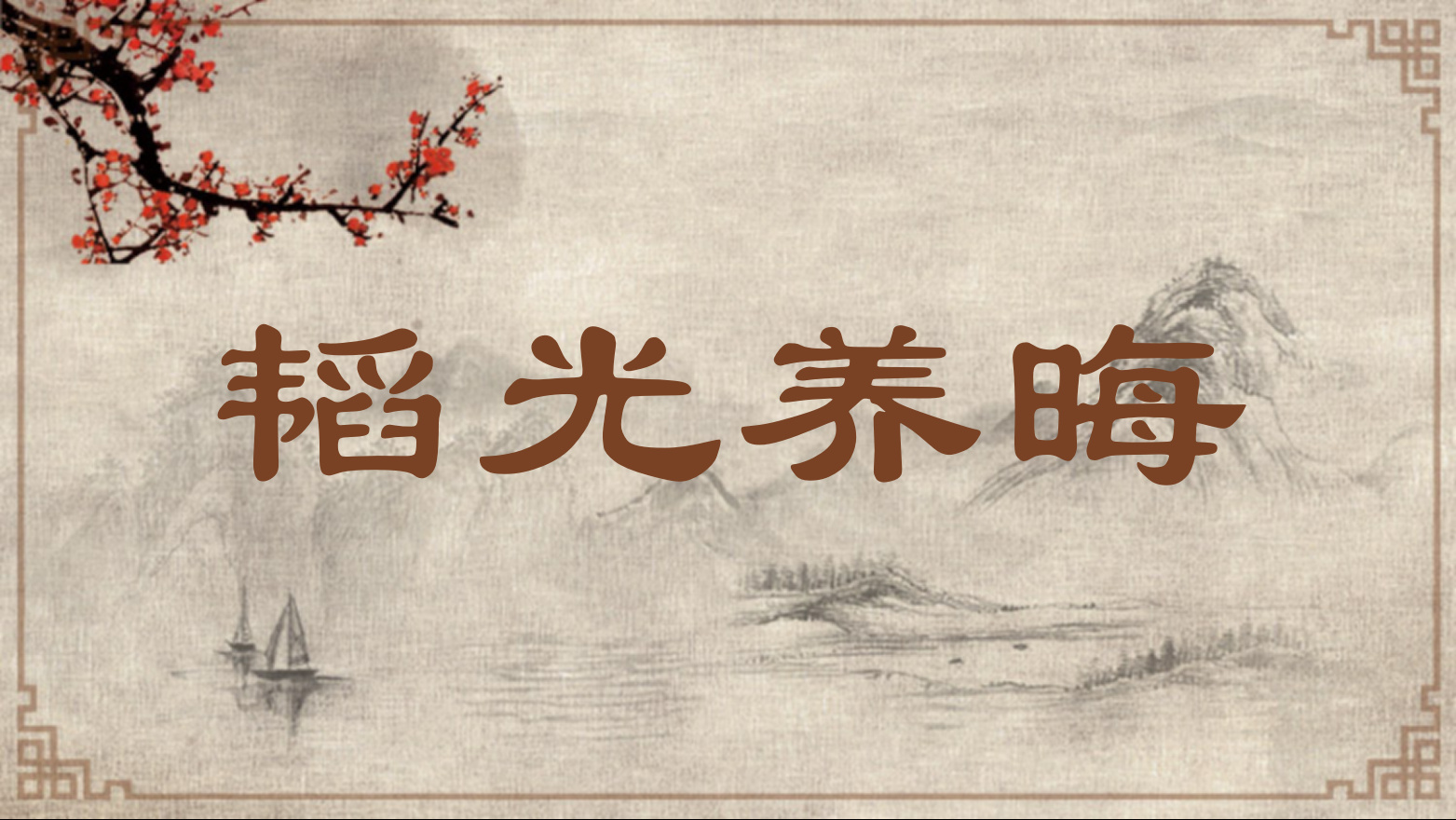韬光养晦 Keep a Low Profile

隐己之长,补己之短。“韬”本指剑衣或弓袋,引申为内藏;“光”即光芒、光彩,比喻实力、才华等优长;“韬光”即收敛自己的光芒,指不以自身优长而炫耀、张扬。“养”即修养、培养;“晦”即昏暗不明,与“光”相对,比喻自身的劣势、短处;“养晦”指加强修养,弥补自身不足。此语体现了中国人低调、内敛,注重自我完善和发展的精神气质。
This term means not to publicize one's strong points but make up for one's weak points. Tao means a sword sheath or an arrow box. Guang means light, indicating one's capability and talent. Taoguang means not to advertise one's strong points, and never to boast about or show off one's talent or skills. Yang means cultivation while hui means dimness, indicating weakness or disadvantage. Yanghui means to strengthen one's cultivation and offset one's weaknesses. This term shows that the Chinese people uphold modesty, restraint, self-cultivation, and self-enhancement.
引例 Citations:
◎圣人卑谦,清静辞让者见下也,虚心无有者见不足也,见下故能致其高,见不足故能成其贤。(《文子·九守》)
圣明的人很谦卑,生性清静谦让的人总把自己看得很低,虚心而不以为什么都懂的人总看到自己的不足,把自己看得很低反而能实现更高的目标,觉得自己不足的人反而能成就高尚的品德。
A noble person is humble. A sedate and modest person always keeps a low profile, and is aware of his own weaknesses. A person who keeps a low profile may be able to reach high goals. A person who is aware of his own weaknesses may be able to accomplish high morality. (Wenzi)
◎自顾年老才庸,粗知《易》理,亦急拟独善潜修,韬光养晦。(郑观应《盛世危言·自叙》)
想到自己上了年纪,才学平庸,粗知《周易》所讲的道理,打算赶快独自潜心修养,隐己之长,补己之短。
Thinking that I am getting on in age, without much talent, and only have a shallow understanding of some concepts expounded in The Book of Changes, I must hurry to cultivate myself, keep a low profile, and make up my own weaknesses. (Zheng Guanying: Warning Words in a Prosperous Society)
推荐:教育部 国家语委
供稿:北京外国语大学 外语教学与研究出版社
责任编辑:钱耐安





